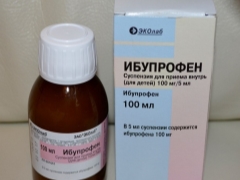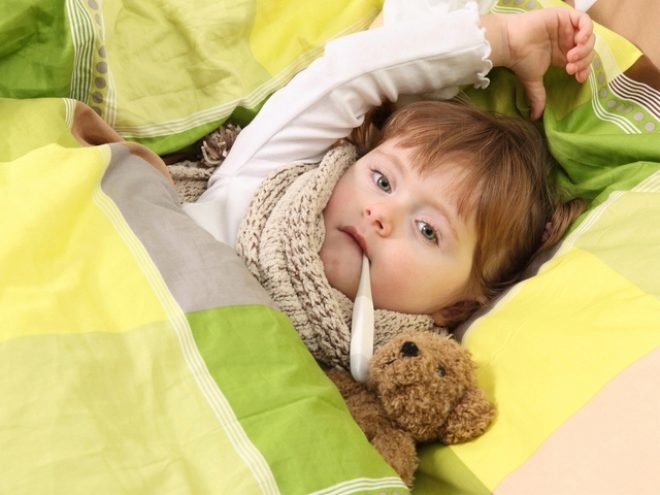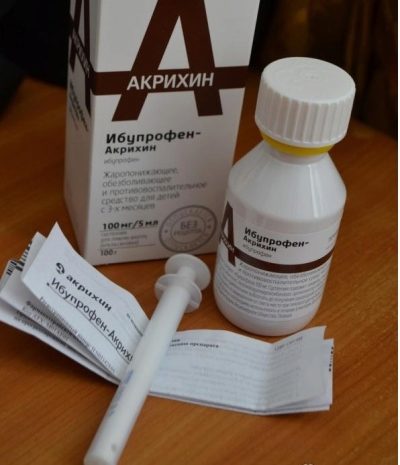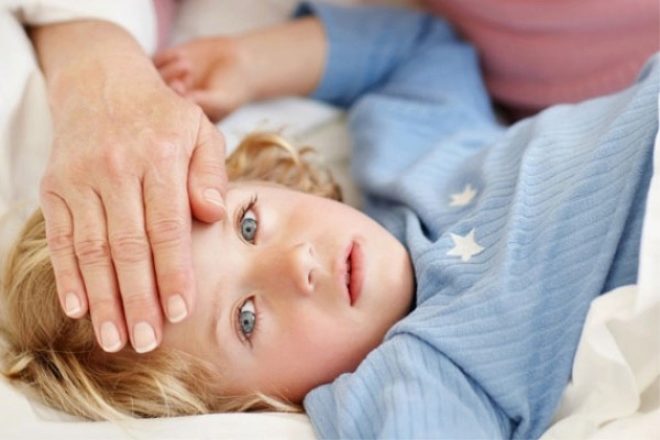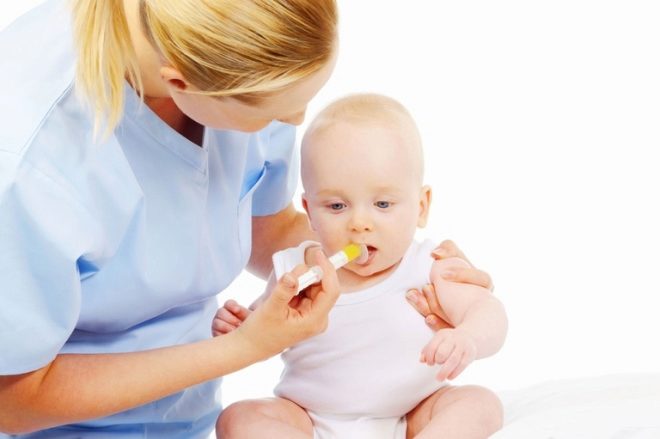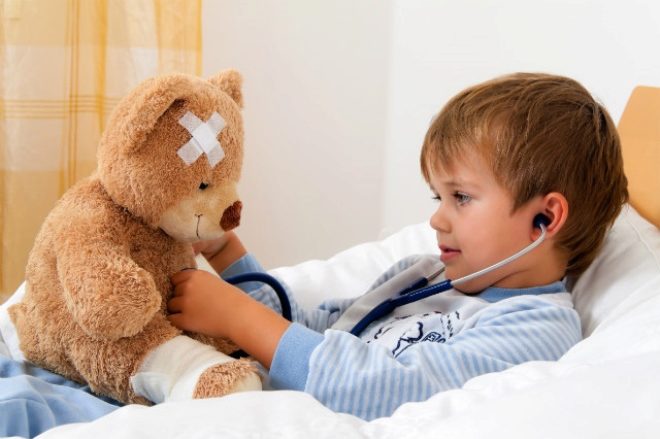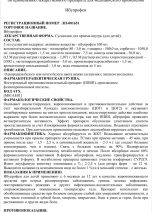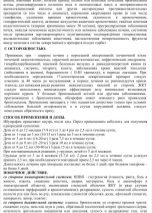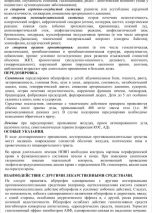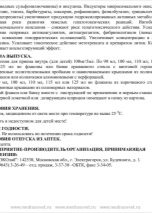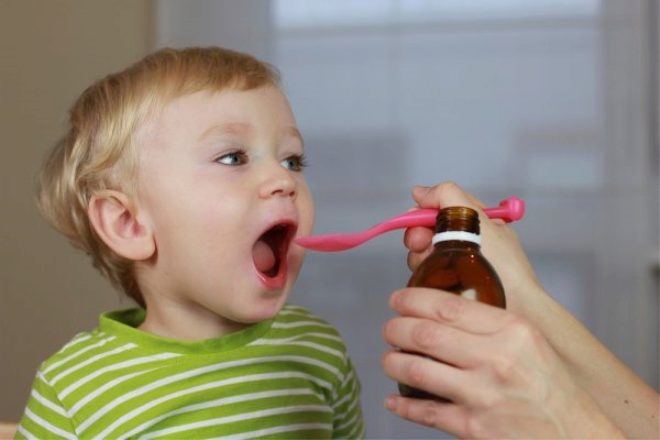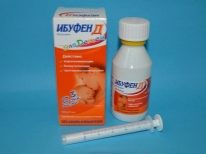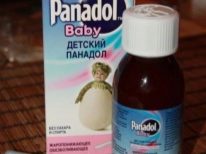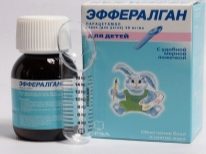Suspension "Ibuprofen": instructions for use for children
"Ibuprofen" is one of the most popular drugs to reduce high body temperature or fight pain. This medicine is available in several forms, and the most popular in the treatment of children is the suspension, because it is easy to give, even babies. Not everyone knows how such a drug acts on the child's body when it is prescribed and in what dosage is used for children.
Release form
"Ibuprofen" in liquid form produced by "ECO Lab" in the form of a 2% solution, packaged in dark glass bottles of 100 ml. This suspension has a white and cream color, an orange smell and a slightly tart sweet taste. A measuring spoon is attached to the bottle, allowing you to collect the drug in a dose of 2.5 or 5 ml.
Pharmacies also offer a suspension called “Ibuprofen-Akrikhin”, which has a bright orange color and orange flavor. This medication is packaged in 100 ml each - both in a glass bottle and in a plastic bottle. There is a syringe or measuring spoon in the package for the exact dosage of the medicine.
Composition
The main component of the suspension, thanks to which it has a healing effect, is ibuprofen. In 5 milliliters of medication this substance is contained in a dose of 100 mg. Among the auxiliary ingredients of the drug are sorbitol, glycerol, xanthan gum, citric acid, flavors and other compounds.
Operating principle
Once in the child's body, ibuprofen influences the process of prostaglandin synthesis, with the inhibition of which the anesthetic and anti-inflammatory effect of the suspension is associated. The drug also has a antipyretic effect. and the ability to inhibit platelet aggregation.
After ingestion, the active compound is absorbed from the stomach quite well. The drug begins to act after 20-30 minutes after swallowing, and its therapeutic effect lasts up to 3-4 hours. Derived mainly by the kidneys, completely leaving the body after a single dose within 24 hours.
Indications
"Ibuprofen" in the form of a suspension is used as a symptomatic agent in the following situations:
- If a child has a high body temperature with flu, sore throat and other infectious diseases.
- If the baby has a fever after vaccination.
- When crumbs teeth are cut, and this process is painful for a child.
- If the baby has otitis, the child complains of earache.
- When neuralgia, pain in the joints and muscles - for example, after injury.
At what age is it allowed to take?
Suspension is not prescribed to infants up to 3 months of age, and for children 3-6 months it can be given only after consulting a doctor (most often at this age, the drug is prescribed for post-vaccination fever). The annotation to the drug also states that he is appointed only up to 12 years old, and adolescents over 12 years old It is better to give analogues with higher dosage.
Contraindications
Suspension is not prescribed:
- When intolerance as ibuprofen, and other components of the drug, as well as fructose.
- If you are allergic to other nonsteroidal anti-inflammatory drugs.
- With ulcerative or erosive lesions of the digestive tract - for example, with an exacerbation of a gastric ulcer or ulcerative colitis.
- With severe renal failure.
- With elevated levels of potassium in the blood.
- With intestinal inflammation.
- With a tendency to bleeding and hemophilia.
- With a shortage of enzymes isomaltase or sucrase, as well as in the case of glucose-galactose malabsorption.
If a child has diabetes, heart disease, liver disease or other serious illnesses, Ibuprofen should be used with caution.
Side effects
- The child's digestive tract may react to suspension treatment by the appearance of painful sensations in the abdomen, flatulence, nausea, appetite deterioration, and other negative symptoms.
- In some children, the medication causes allergies, which can manifest urticaria, runny nose, bronchospasm, skin itching and other types of allergic reactions.
- On the part of the central nervous system of a small patient, dizziness or headaches may appear in response to taking Ibuprofen. Toddlers sometimes become drowsy, anxious, irritable, or overly agitated.
- Influencing the blood, "Ibuprofen" can provoke anemia, leukopenia and a decrease in platelet levels.
- In rare cases, treatment with a suspension leads to hearing loss and various visual impairments, as well as kidney damage, tachycardia, or increased blood pressure.
Instructions for use
- Karapazu aged 3 to 6 months with a weight of more than 5 kg, the syrup is given in a dose of 2.5 ml (twice a day).
- Infants 6-12 months with a weight of less than 10 kg, the drug is given 3 or 4 times a day in 2.5 ml.
- For babies aged 1 to 3 years weighing from 10 to 15 kg in a single dosage will be 5 ml of suspension. It is given three times a day.
- A child is 3-6 years old, the weight of which ranges from 16 to 20 kg, three times the medication is taken in 7.5 ml.
- Aged 6 to 9 years old (weighing 20-30 kg) one-time amount of the drug is 10 ml. Suspension in this dose give 3 times a day.
- 9-12 years old child with a weight of 30 to 40 kg, the drug is prescribed three times a day, 15 ml.
If the suspension is given to a child with a reaction to the vaccine, then often it is taken once (in the appropriate age dose). Sometimes after 6 hours you need to re-receive.
When fever suspension can be taken only three days. If the high temperature persists on the fourth day, you should consult a doctor. If the medication is used for pain, the duration of use is up to 5 days.
Overdose
If you accidentally exceed the dose of the suspension, it can cause tinnitus, abdominal pain, nausea, drowsiness and other negative symptoms. In severe cases, the drug provokes respiratory arrest, liver damage, bradycardia, seizures, and other dangerous conditions. For this reason, when overdosing, it is important to immediately consult a doctor.
Interaction with other drugs
The use of Ibuprofen may affect treatment by many other means, including other nonsteroidal drugs, diuretic drugs, insulin, vasodilators, antacids and anticoagulants. If the child takes some extra medication, Before taking the suspension should consult a doctor.
Terms of sale and storage
Store the sealed drug at home is recommended at room temperature for the entire shelf life (3 years) - in a dry place where young children will not get the product. If the package is opened, it should be used within 6 months.
If after the first use half a year has passed, and the suspension in the bottle is still left, it should be discarded.
Reviews
Side effects after taking the syrup are rare, but sometimes the kids do not like the smell, as well as the taste of this medicine. The disadvantages include the fact that the bottle is glass, and the lid opens very easily (there is no protection against children).
Analogs
If the opportunity to give the child "Ibuprofen" or "Nurofen" in the suspension is missing, the doctor can replace these drugs with other antipyretic and analgesic drugs - for example "Children's Panadol", syrup «Efferalgan» or drug «Calpol". The basis of these medicines is paracetamol, which is used in the treatment of children older than 3 months. It is considered safe and effective in combating fever in children.
Detailed instructions for use of Ibuprofen are set out in the video.
Doctor Komarovsky will tell you about which antipyretic drugs are best used to treat a child.
